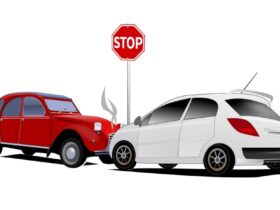
Getting justice when someone’s carelessness costs a life is one of the hardest things a family can face. Nobody should have to deal with losing someone they love because another person wasn’t being careful. But unfortunately, it happens every single day. Maybe it’s a driver who was texting and ran a red light. Or a doctor who didn’t follow safety procedures. Or a company that cut corners on safety equipment. When these situations happen, families are left wondering what they can do and whether anyone will be held responsible.
What Makes Something More Than Just an Accident
Not every death that seems preventable automatically becomes a legal case. The law looks at whether someone was being negligent, which basically means they weren’t being as careful as they should have been. Think of it this way – if you’re driving, you’re expected to follow traffic laws, pay attention to the road, and not do things that could hurt other people. If you decide to speed through a school zone while texting, and someone gets hurt, that’s negligence.
The same idea applies to doctors, construction companies, manufacturers, and pretty much anyone whose job involves keeping other people safe. They have a responsibility to follow certain standards. When they don’t, and someone dies because of it, that’s when the legal system can step in.
When Families Need Legal Help
Dealing with a sudden death is already overwhelming without having to worry about legal issues. But sometimes families need professional guidance to understand their options and protect their rights. Experienced Wrongful Death Attorney Services can help families navigate the complex legal process while they focus on grieving and healing. These cases often involve detailed investigations, medical records, and expert testimony that most people wouldn’t know how to handle on their own.
The timing of getting legal help matters too. Evidence can disappear, witnesses can forget important details, and there are deadlines that families might not even know about. Having someone who understands the legal system can make a huge difference in whether a family gets the answers and justice they’re looking for.
Different Types of Careless Behavior That Can Be Deadly
Carelessness that leads to death can happen in so many different ways. Medical mistakes are probably one of the most common. Maybe a surgeon operates on the wrong body part, or a nurse gives someone the wrong medication, or a doctor misses an obvious diagnosis. These aren’t just simple mistakes – they’re failures to follow basic safety procedures that exist for good reasons.
Car accidents are another big category. Drunk driving, texting while driving, running red lights, or driving way too fast for conditions. These are all choices that drivers make, and when those choices kill someone, the driver needs to be held responsible.
Workplace deaths happen when companies don’t follow safety rules. Construction sites without proper safety equipment, factories with dangerous machinery that isn’t maintained properly, or workplaces where employees aren’t trained on how to handle hazardous materials safely.
Product defects can also cause deaths. Cars with faulty brakes, medical devices that don’t work properly, or toys with dangerous parts that can choke children. When companies know about these problems but don’t fix them, people can die.
What Happens When Families Fight Back
When families decide to pursue justice, they’re usually looking for two main things. First, they want someone to take responsibility for what happened. They want the person or company that caused the death to admit they made a mistake and be held accountable. Second, they want to make sure the same thing doesn’t happen to other families. Nobody should have to go through what they’re going through.
The legal process can take time, sometimes years. There are investigations to figure out exactly what happened and who was at fault. Medical experts might need to review records. Accident reconstruction specialists might need to analyze a crash scene. Engineers might need to examine defective products.
During all of this, families are dealing with their grief while also having to relive the details of their loved one’s death over and over again. It’s emotionally exhausting, but many families say it’s worth it if it prevents other deaths or if it brings some sense of justice.
The Money Side of Things
One thing people don’t always realize is that wrongful death cases often involve significant financial issues. When someone dies unexpectedly, it can create serious money problems for their family. There might be medical bills from trying to save their life. Funeral costs. Lost income if the person who died was supporting the family financially.
The legal system tries to address these financial impacts by requiring the responsible party to pay compensation. This isn’t about putting a price on someone’s life – that’s impossible. It’s about making sure families don’t suffer financially on top of everything else they’re dealing with.
Why Some Cases Succeed and Others Don’t
Not every case where someone dies because of carelessness will result in a successful legal outcome. The family has to be able to prove that the person or company really was being negligent, and that the negligence directly caused the death. Sometimes the evidence just isn’t there, or it’s too complicated to prove.
Other times, the responsible party might have good lawyers who can make the case more difficult. Big companies especially tend to fight these cases hard because they don’t want to admit fault or pay large settlements.
Moving Forward After Tragedy
For most families, pursuing justice isn’t really about the money or even about punishment. It’s about making sure their loved one’s death means something. They want changes made so other families don’t have to go through the same thing. Sometimes that happens through the legal process, and sometimes it happens through other kinds of advocacy work.
What matters most is that families have options when someone’s carelessness costs a life. Nobody can bring back someone who died, but the legal system can at least try to hold people accountable and provide some measure of justice during an incredibly difficult time.



